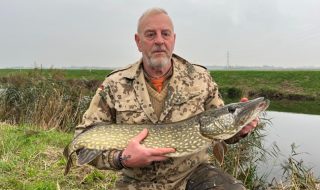A landmark research report to be launched on Tuesday by the Minister for the Natural Environment and Fisheries, Richard Benyon MP, has lifted the lid on the role that angling plays in our communities.
The three year research programme by Substance has surveyed and interviewed thousands of anglers and demonstrates the valuable contribution angling makes to communities by improving the environment, helping young people gain new skills and contributing to the local and national economy.
The report has been welcomed by the Angling Trust who called for a more joined up approach in government to maximise angling’s social impact. Mark Lloyd, Angling Trust Chief Executive said: ‘This work, by the independent and highly-respected research team at Substance, provides invaluable evidence that angling is really important to millions of people and their communities. What is clear is that anglers not only protect and improve the water environment, but that their sport plays a vital role in contributing to well being, social cohesion and keeping young people out of trouble. We call on the Home Office, and the health and education departments to embrace angling as a mechanism for improving wellbeing and skills.’
Fishing for Answers, is the final report from a three year study of angling by research company Substance funded by the Big Lottery research fund. It is to be launched at a conference in London today sponsored by the Angling Development Board. It will outline how angling is about far more than fishing:
• 25% of anglers said that they were involved in environmental improvement work
• 22% volunteered in teaching or coaching formally and informally
• The UK is a leader in the field in angling based youth education and inclusion work
• Angling organisations have helped restore and develop local waters as genuine community assets, bringing people together and reducing crime and anti-social behaviour
• Angling can stimulate the economy in rural areas and coastal towns through tourism, particularly outside of the traditional season. In one case study angling tourists contributed around £1 million a year to a remote rural area
David Moore, Chair of the Angling Development Board which is sponsoring the conference explained: ‘This groundbreaking research by Substance has collected and analysed a wealth of information and personal experiences and demonstrates that angling is about far more than catching fish, it has vast un-tapped potential for improving people’s lives their health and wellbeing.’
The research also reveals that angling, one of the nation’s most popular pastimes:
• Can assist good health and well being – as a preventative measure helping to reduce stress and as a treatment to restore health after strokes, cancer treatment, mental illness, inactivity or trauma.
• Can involve intense physical activity – although often thought of as a sedentary sport, the research found that 34% of game anglers surveyed said that their fishing involved high levels of intensity physical activity; and around half of all anglers saying that it involved moderate physical activity.
• Is a gateway activity that can lead to participation in cleaning up the environment, rivers and beaches – over a quarter of anglers surveyed said that they took part in some environmental improvement work.
• Helps young people reconnect with education and avoid crime.
The Big Lottery Fund Head of UK Policy, Chris Butcher, who will open the conference said: ‘Lottery funded research must have practical use – to inform policy and to improve practice. This research has demonstrated real benefits to community organisations as well as national bodies by showing how angling can help improve people’s lives.’





